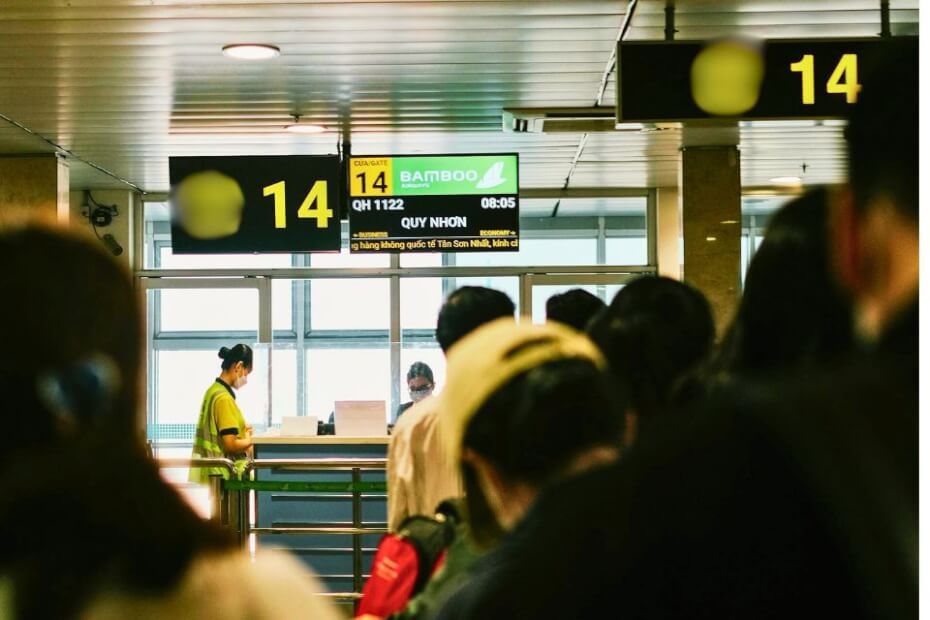
The United Kingdom’s (UK’s) new Electronic Travel Authorization (ETA) system could strain immigration services.
The ETA requires visa-exempt visitors to apply and pay for pre-travel authorization before their trip.
The new system promises to improve border security and streamline entry processes.
However, legal experts warn that it could significantly strain the UK’s already challenging immigration services.
Warnings about ETA system overload
Kingsley Napley, a British law firm, has raised concerns that the ETA system could overwhelm the UK Home Office and immigration services.
According to the law firm’s Nicolas Rollason, the Home Office anticipates about 30 million ETA applications annually.
“If even one percent of these require additional processing, that’s 300,000 extra cases,” he warned, as per The Guardian.
This highlights the potential bottlenecks in the ETA application outside the automated process.
The ETA system automatically cross-checks data from the online application form against several security databases in the UK and abroad.
However, there may be instances when an ETA application is put under review.
In such cases, the Home Office would need additional documents to determine an applicant’s ETA eligibility.
It also means that processing the application would require a human decision-maker to review it.
ETA rules also state that those with criminal sentences of 12 months or more must instead apply for a UK visa.
This can include long-spent convictions for minor offenses, such as shoplifting or drunk driving convictions from decades ago.
Rollason’s warning comes as the Home Office grapples with existing backlogs and staffing shortages.
It has raised doubts about whether immigration services can handle the increased workload without delays.
How the new UK ETA system affects travelers
The ETA is a new requirement for travelers from countries with visa-waiver status with the UK.
This includes the United States (US), Canada, Australia, and European Union (EU) nations except Ireland.
By April 2025, visitors to the UK for tourism, permitted business activities, short-term study, and transit will need to apply for an ETA.
Applying for the pre-travel authorization is done online on the UK government website or the UK ETA app.
The UK ETA costs £10 per application. If granted, it is valid for two years and allows multiple short stays of up to six months each.
The new digital permit system aims to improve security by pre-screening travelers and identifying potential threats before they arrive.
There were no reported issues with the ETA system when visitors from Bahrain, Kuwait, Oman, Qatar, Saudi Arabia, and the United Arab Emirates (UAE) started using it in October 2023 and February 2024.
Since then, the Home Office has issued about 600,000 ETAs to citizens of the six countries.
However, its wider implementation raises concerns about the UK’s readiness to handle such a large volume of applications.
Potential technical and operational challenges

The expanded rollout of the ETA system for citizens of 88 countries raises concerns about the UK’s ability to manage its technical and operational challenges.
In May 2024, electronic gates (eGates) at major UK airports failed nationwide, causing massive delays and underscoring vulnerabilities in the country’s border infrastructure.
Lord Foster of Bath, chairman of the Justice and Home Affairs Committee, highlighted the importance of robust systems.
“The government must ensure the technology behind ETA is reliable and resilient to avoid a repeat of past disruptions,” he said in a 2024 committee hearing.
The reported issues about the UK’s digital-only immigration status system also do not help increase confidence in the new ETA system’s reliability.
On top of technological concerns, the success of the ETA system relies on the UK Border Force, which enforces immigration rules at entry points.
David Neal, former Independent Chief Inspector of Borders and Immigration, pointed out that technology alone is not enough.
“If the people mitigations are not in place, the border will always be vulnerable,” he stated.
Neal also raised a possible loophole in the ETA system with the open land border between Ireland and Northern Ireland.
Home Office leaders from the previous Conservative Government admitted that enforcing the ETA in Northern Ireland would be challenging.
However, they have remained firm in achieving the ETA’s goal of strengthening UK border security.
Learning from other countries
The UK ETA system is similar to the US Electronic System for Travel Authorization (ESTA) and those used by Canada and Australia.
Still, experts warn of differences in scale and implementation.
For instance, the US ESTA program processes fewer travelers annually than the 30 million expected for the UK system.
Australia’s electronic travel authorization system was also launched gradually, with the launch of its digital visa system taking a back seat.
However, the UK is also transitioning to its own eVisa system in 2025, alongside the wider ETA implementation.
Lessons from these programs could inform the UK’s approach, especially regarding user experience and technical resilience.
The EU is also preparing to launch a similar system, the European Travel Information and Authorization System (ETIAS), later this year.
It was originally planned for implementation in 2023 but has now been delayed to a launch sometime in 2025.
Advice for travelers

Travelers planning to visit the UK should prepare to apply for an ETA well in advance of their travel dates.
ETA application processing usually takes three working days. Many approvals are sent within minutes or on the same day of submission.
Still, applicants should allow extra time during busy travel seasons to avoid potential delays.
The ETA is electronically linked to one’s passport. However, keeping the confirmation email in case any issues arise at the border is prudent.
It’s also important to note that an ETA does not guarantee entry into the UK.
Border Force officers will still assess travelers upon arrival to ensure that they meet all entry requirements.
The UK’s new ETA system offers improved security and streamlined travel, but there are still risks of overload and disruptions.
Challenges such as technical reliability and adequate staffing must be carefully addressed to ensure the program’s success.
As the UK adopts this new strategy, effective communication, and strong infrastructure are essential to prevent overloading immigration services and ensure smooth travel.

